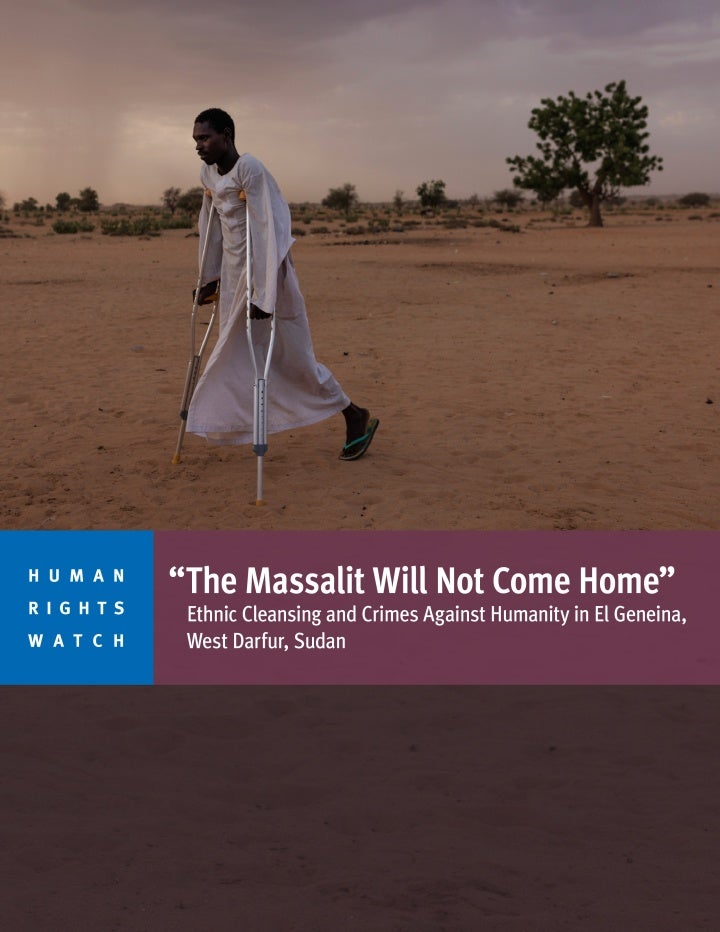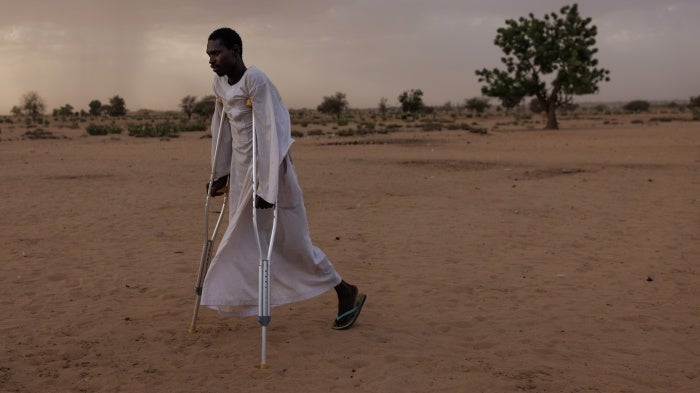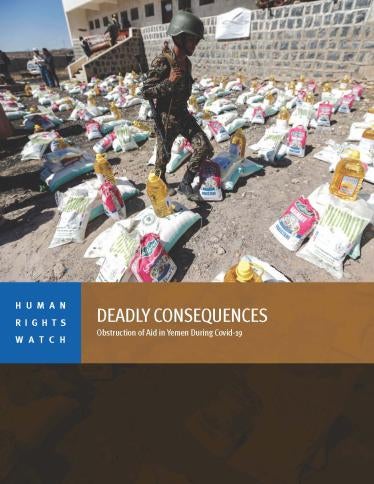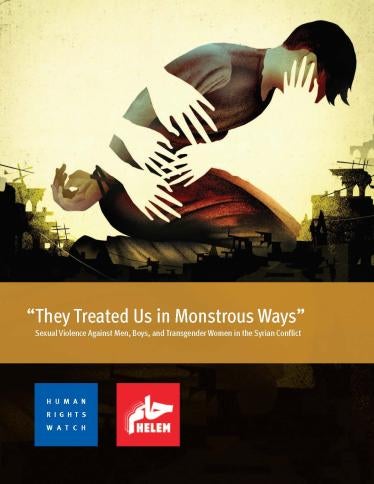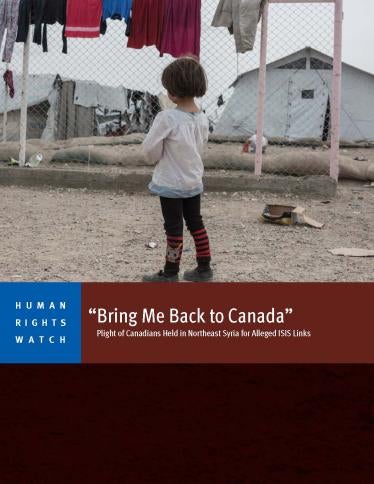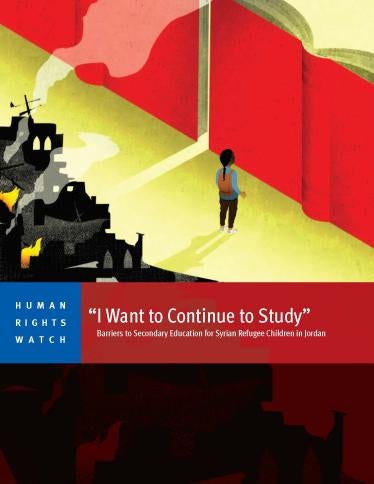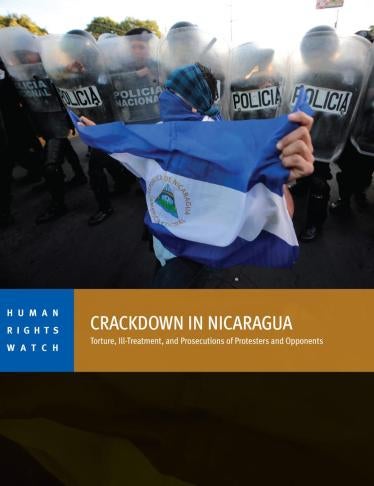“The Massalit Will Not Come Home”
Ethnic Cleansing and Crimes Against Humanity in El Geneina, West Darfur, Sudan
The 218-page report, “‘The Massalit Will Not Come Home’: Ethnic Cleansing and Crimes Against Humanity in El Geneina, West Darfur, Sudan,” documents that the Rapid Support Forces, an independent military force in armed conflict with the Sudan military, and their allied mainly Arab militias, including the Third-Front Tamazuj, an armed group, targeted the predominantly Massalit neighborhoods of El Geneina in relentless waves of attacks from April to June. Abuses escalated again in early November. The attackers committed other serious abuses such as torture, rape, and looting. More than half a million refugees from West Darfur have fled to Chad since April 2023. As of late October 2023, 75 percent were from El Geneina.
